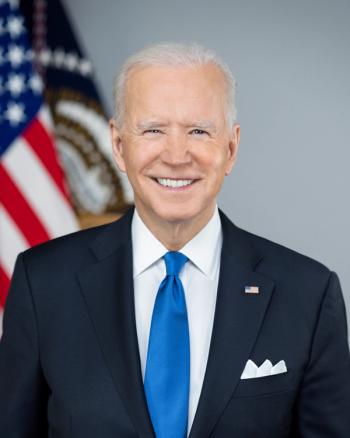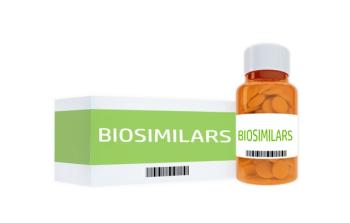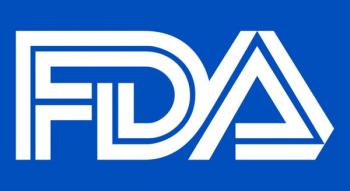
In calling for extending the $35 cap on insulin prices to people with private insurance, the president spoke about big pharma making record profits.

In calling for extending the $35 cap on insulin prices to people with private insurance, the president spoke about big pharma making record profits.

An online condition-based care service designed to help people understand if they meet the criteria for progression to severe COVID-19 was launched under the partnership of Pfizer and Ada Health.

Gastroesophageal reflux disease is a risk factor for what is now the more common type of esophageal cancer, adenocarcinoma. Immunotherapy is coming on strong as a treatment.

The FDA has approved two breast cancer therapies this week: Trodelvy to treat patients with HR+/HER2- breast cancer and Orserdu to treat patients with ER+, HER2-, ESR1-mutated disease. The agency also approved a novel therapy for CKD-related anemia and Tezspire in pre-filled pen.

Evernorth, Cigna’s pharmacy and benefits solutions division, contributed more than 75% of the company’s revenue last year.

François de Brantes, a member of the Managed Healthcare Executive ® editorial advisory board and senior partner at High Value Care Incentives Advisory Group LLC, describes what he believes has caused a major inflection point in the management, delivery and payment of U.S. healthcare

Certain biomarkers identified by these devices can be used to identify survivors of trauma who need further evaluation.

In this month’s episode of Tuning In to the C-Suite, Managing Editor Peter Wehrwein talks with Rick Bates, MBA, president and CEO of RxSense. In his conversation with Wehrwein, Bates described RxSense as a “technology platform company that has expertise in the direct-to-consumer business.” He emphasized that RxSense is not a pharmacy benefit manager (PBM) — but, rather, a company that supplies PBMs with technology, including some of the up-and-coming PBMs, such as EmsanaRx and Vivid Clear Rx. Bates and Wehrwein also discussed the Mark Cuban Cost Plus Drug and RxSense launching a standalone business intelligence product called Rx IQ.

It's been reported more often now that funding for telehealth has decreased and it will only continue to do so into the year. Funding has likely decreased because the video/virtual care medium has become a commodity, according to Summus CEO and Founder, Julian Flannery.

A Swedish and a French company have treatments with novel mechanisms of action in late-stage development. Meanwhile, AbbVie, Janssen and Eli Lilly are vying to get the first interleukin-23 inhibitor for ulcerative colitis on the market.

Larger payers have plenty of cash on hand to do deals but will look for “adjacencies” rather than merger and acquisition with other payers because of the regulatory environment, say Bain experts.

The Risk Adjustment Data Validation (RADV) rule was finalized today. The new rule for governing how CMS audits Medicare Advantage plans for overpayment due to inflated risk adjustment could cost insurers billions of dollars.

Virtual care has been a favored service among many healthcare consumers as its users have shared they want more out of it, according to a 2022 Virtual Care Survey Report by Summus.

Connecting the healthcare system and patients in a positive, empathetic, respectful way may help lessen the fatigue many groups have with the healthcare system at-large and individual healthcare providers, while improving health equity.

As a dozen Humira Biosimilars are set to enter the market this year, it seems to be unlikely that they will drive down drug costs in the future.

The FDA approved a new drug for type 2 diabetes and a new BTK inhibitor for rare blood cancer while Keytruda got another indication in lung cancer. But Evusheld lost its EUA for COVID-19. The agency accepted an sNDA for Jardiance for CKD and officials said they plan to hold advisory committee meeting for Biogen’s ALS drug.

Results from a recent U.S. Department of Health and Human Services (HHS) analysis shared that Medicare beneficiaries who use insulin would have saved $734 million in Part D and $27 million in Part B if these caps had been in effect in 2020

Evio is launching a new pharmacy solution that leverages Flipt’s proprietary, cloud-based benefit administration and patient engagement platforms.

Telehealth, especially for behavioral health, has created new opportunities for dishonest individuals to file fraudulent claims. Health plans can take steps to stop the fraud before it happens.

Some 80% of the clinical data is in an unstructured or semi-structured form within the notes sections of electronic health records. Natural language processing can "read” those notes and extract information without fatigue.

1 out 3 Medicaid patients who might have benefited from targeted therapy —mainly Tagrisso and Alecensa — for metastatic lung cancer did not receive it, according to estimates by a trio Harvard-affiliated researchers.

Researchers examined data from the 2019 and 2021 American Community Survey and found that, nationally, the uninsured rate declined from 11.1% to 10.5%, a change that represents more than 1.6 million people gaining coverage.

A solid majority of respondents said vertical integration among providers is the consolidation trend that is most likely to accelerate this year.

It will be vital for providers of healthcare to consider whether innovations truly improve people’s lives and make care more efficient, or will they just be another layer on the workflow and take clinicians’ time away from patients.

Most of the respondents believe vaccination and antivirals have turned COVID-19 into manageable disease, but there is concern about long COVID-19.

Authors of the study, which was published in Jama Network, found that patients with commercial insurance had total and OOP costs that varied by facility for common EGS conditions without any association with quality of care, even after adjusting for patient, insurance, and clinical factors.

This week the FDA approved new indications for already available therapies, including Brukinsa for chronic lymphocytic leukemia and an accelerated approval for Tukysa for HER2-positive colorectal cancer, as well as an extended-release form of risperidone for schizophrenia. The agency also issued a complete response letter for Lilly's Alzheimer’s drug and accepted an application for a NASH drug.

The survey also showed that many believe value-based care is being gamed and that chances that it will be successful are small.

Thirty-seven percent of the respondents rated themselves as optimistic about the near-term future of U.S. healthcare.

Higher costs for employers and consumers, major layoffs, a decline in the quality of care are some consequences seen by respondents to the Managed Healthcare Executive® State of the Industry survey. Investment in technology that will improve efficiency might be a silver lining.